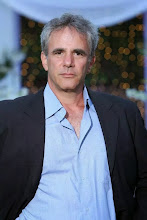In an editorial entitled "The Untimely Death of an Iranian Pragmatist," The New York Times writes about the passing of Iran's Ayatollah Rafsanjani:
"The death on Sunday of Ayatollah Ali Akbar Hashemi Rafsanjani has increased this uncertainty. A moderate in Iran’s factional political struggles, Ayatollah Rafsanjani worked hard to soften its anti-Americanism and encourage constructive engagement with the West."
Rafsanjani "worked hard ... to soften Iranian anti-Americanism? Fascinating. But consider what Michael Rubin writes in a Washington Examiner article entitled "Deceased Iranian President Rafsanjani was no moderate":
"Rafsanjani was a master strategist and an initiator of Iran's game of good cop-bad cop, but he was no moderate. He was well known for his corruption, affluence, and commitment to the Islamic Republic's genocidal ideology.
He was the father of the Islamic Republic's nuclear weapons program, having lobbied for it while chairman of parliament and then worked, alongside Hassan Rouhani, then-secretary of the Supreme National Security Council, to divert the peace dividend that Iranians might have enjoyed following the end of the Iran-Iraq War, channeling it instead into a covert nuclear weapons and ballistic missile program. For Rafsanjani, deterrence may not have been the end goal. On Dec. 14, 2001, for example, he suggested that Iran could use nuclear weapons to eradicate Israel, arguing that Iran had the strategic depth to absorb any second strike."
And as the Islamic Republic News Agency reported on July 6, 2015 in an article entitled "Rafsanjani: Forged Israeli regime to be wiped-off map one day":
"The chairman of the Expediency Council made the comment in an interview with Al Ahd news website affiliated to the Lebanese Hezbollah Movement.
In response to a question why the Zionist regime has done its best to prevent the path for reaching a nuclear agreement between Iran and the West, Ayatollah Rafsanjani said that even Tel Aviv knows well that Iran is not after acquiring nuclear weapons.
'By doing so the Zionist wish to keep Iran engaged in problems permanently, knowing that the Islamic Republic's political, economic, cultural and propagation status will all improve after such an agreement,' he said.
Asked about the future of the Palestinian nation, Rafsanjani said that he still believes that eventually one day the forged and temporary Israeli entity, which is an alien existence forged into the body of a nation and a region be wiped off the map."
Concerning Rafsanjani's attitude toward the US, have a look at Ali Alfoneh and Reuel Marc Gerecht's January 9, 2017 article entitled "The Death of Ali Akbar Hashemi-Rafsanjani, a Machiavellian Prince" in The Weekly Standard:
"In the mid-1980s, Rafsanjani directed the Lebanese Hezbollah to engage in the hostage-taking of Americans and Europeans; with Rouhani again his point man, he used the hostages to acquire arms and spare parts from the United States. In his published daily journal, Rafsanjani mused over America's 'helplessness.'
Following the end of the war in 1988, and the death of Khomeini in 1989, Rafsanjani engineered Khamenei's succession as the Guardian Jurist. Lacking charisma and a clerical network, Khamenei seemed harmless and dependent. For a time, the arrangement worked: Rafsanjani got the credit for post-war reconstruction and the initiation of the then-secret nuclear-weapons program, while Khamenei remained a figurehead."
Rafsanjani also refused to countermand the death decree against author Salman Rushdie.
Rafsanjani was a moderate or pragmatist? Road apples!

No comments:
Post a Comment